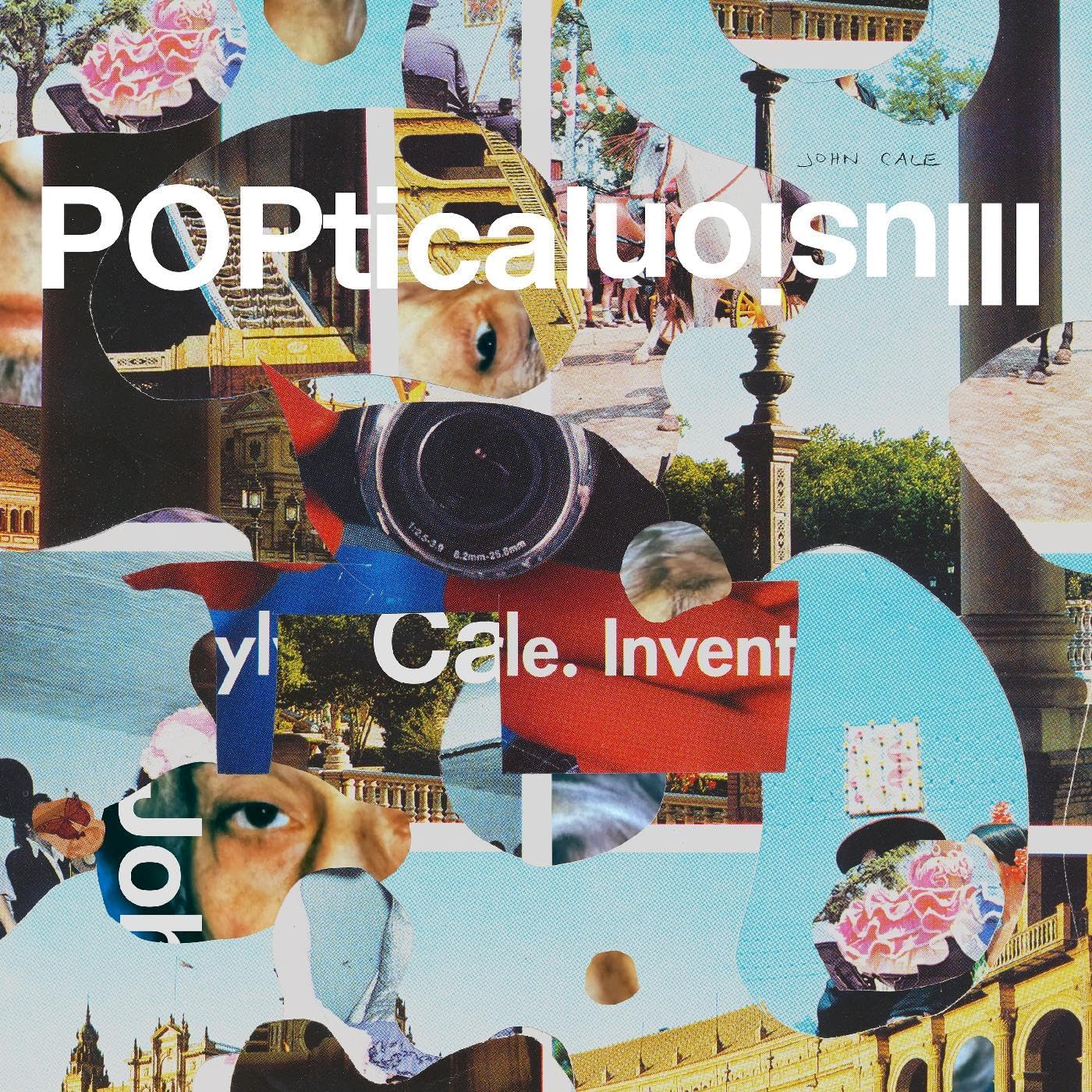John Cale – POPtical Illusion

To paraphrase dril, John Cale is mad. Absolutely do put in the newspaper that he gets mad on his 24th studio album, POPtical Illusion. The sound of it might suggest otherwise, especially when contrasted with last year’s Mercy; that record was rattled with anxiety, using thick blankets of ominous synth to evoke a claustrophobic and unsettling atmosphere that, when taken in tandem with the lyrics, would appear to have offered an accurate sonic representation of how he felt about the world around him.
Now, a little over a year later, he is back with an album considerably looser and lighter in terms of tone, but that on deeper examination turns out to be similarly skeptical about the state of things. The difference is that the despair and uncertainty are now being channeled into righteous fury; if the first four tracks of the album do not give that away with their words and sound, the fifth is helpfully titled ‘I’m Angry’.
Both this album and Mercy were born out of a prodigious spurt of pandemic songwriting inspired by Cale’s realisation that, in his early eighties, he was living through something many of his contemporaries weren’t around to to see. And while his lyrics on POPtical Illusion take aim at capitalist structures, political dishonesty and the ubiquity of greed – sometimes specifically, sometimes in a much more obtuse manner – the sound of the album is much freer, and often feels airy. Take the dreamy synthpop of ‘Laughing in my Sleep’, for instance, or the jaunty, Paris 1919-style piano of lead single ‘How We See the Light’.
Perhaps the highlight is the squalling ‘Shark-Shark’; over walls of screeching reverb that approximate his signature Velvet Underground drone, Cale gradually builds a juddering, groove-centred rocker. The record as a whole is a stirring testament to his flexibility, running the gamut from weird, spacey electronica on ‘Calling You Out’, ‘Edge of Reason’ and ‘Setting Fires’, through to breezy inversions of pop on the likes of ‘All to the Good’.
And whilst his deep Welsh brogue is the one thing about his music that seems unchangeable, unbending to the sonic palette surrounding it, his words are enough to suggest diversity, from madcap storytelling (‘Funkball the Brewster’) to irreverent reflections on his youth (‘Davies and Wales’). POPtical Illusion closes with a gorgeous piano ballad, ‘There Will Be No River’. Like the record overall, it might prove a handsome swan song, if only Cale would show any sign of slowing down.